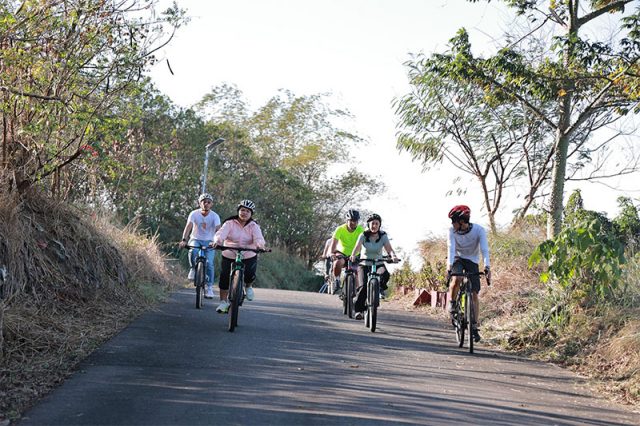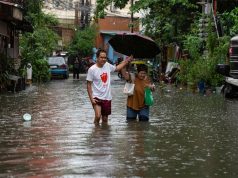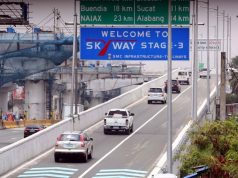
From dumpsite to green space.
Quezon City Mayor Joy Belmonte announced that the former Payatas dumpsite had been transformed into an open bike park where the public could freely cycle and breathe fresh air.
The city chief on Thursday shared pictures of the new Quezon City Bike Park, which she said is located inside the Payatas Controlled Disposal Facility (PCDF).
Belmonte said that she personally visited and inspected the bike trails to see if it was completely safe for the cyclists. She was accompanied by Assistant City Administrator Alberto Kimpo.
“Sino ang mag-aakala na ang dating Payatas Dumpsite ay ngayo’y isang magandang park na!” the city open chief said in a Facebook post on March 1.
“Abangan ang pagbubukas nito, QCitizens!” Belmonte added, referring to her constituents.
The city government said that it aims to give life to the PCDF and continuously improve it so it can benefit the local community.
The Payatas dumpsite was an open waste disposal area located in the barangay of the same name in Quezon City.
Back in the day, it was notorious for being a massive trash landfill and was considered the “Second Smokey Mountain,” another previously open landfill in Tondo, Manila.
In 2000, the upper portion of the mountain of garbage collapsed and buried more than 200 people and their properties.
The Payatas dumpsite was then converted into a controlled disposal facility in 2004, a project that converted biogas into energy. It was closed in 2010.
By 2011, the site reopened as a sanitary landfill and was permanently closed in 2017 after reaching its capacity limit.
Reports said that former Quezon City mayor Herbert Bautista had eyed its transformation as an eco-park or any suitable land use as part of its then-post-closure care activity.
Meanwhile, the current city administration’s initiative to turn the former dumpsite into a bike park earned laudatory remarks from some Pinoys.
“Honestly, we need more parks in this country,” a Filipino from Reddit said.
“Wow, siguradong matutuwa ang mga bikers nito sa lungsod,” another Pinoy on Facebook commented.
“Very good. Para [diyan] na lang mag-le-leisure biking ‘yung mga nag-le-leisure bike sa mga main thoroughfares… malapit sa nature, hind gaanong madumi ang hangin…” another Facebook user said.
Metro Manila, where Quezon City is located, is known to lack communal green spaces where urban dwellers can breathe and unwind as they constantly face air and noise pollution.
A 2014 report titled “Metro Manila Greenprint 2030” described the metro’s green spaces as “disconnected and dwindling.”
Tourism Secretary Christina Frasco said she has already reached out to local government units to provide them with assistance and guidance in developing parks in their respective areas.
“Parks are important because it allows us and our families to commune with nature, to spend quality time with each other, and to remind us that despite how busy life may get, we must always take time to relax, unwind, and spend time to be in touch with nature and commune with the Earth,” she said before.
ALSO READ: Pocket parks, mixed-use spaces bring relief in Metro Manila’s car-centric concrete









